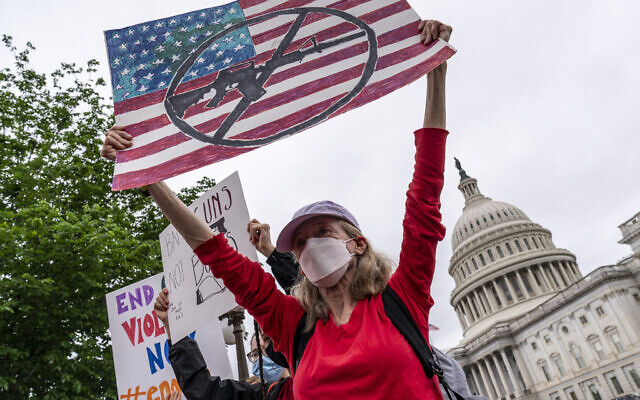
By Tommaso Rabitti, Third-year International Relations student at King’s College London and Editorialist at Res Publica
After Columbine, it had to stop. After Sandy Hook, they said enough was enough. After Parkland, Virginia Tech and many, many more. And now Uvalde.
The rate of mass shootings in the United States is alarming, and it seems to keep climbing. In 2022 so far there have been more than 250. The latest one to shock the country, at an elementary school in Uvalde, Texas, killed nineteen children, two teachers, and left seventeen people wounded.
With every new shooting, the political debate on gun control is set ablaze again – for a few weeks – before smouldering and blowing out unnoticed. President Biden pledged that it would be different this time: in an emotional address to the nation, he urged Congress to act and pass sensible gun reform laws. Oscar-winning actor, and Uvalde native, Matthew McConaughey spoke in the White House Briefing Room about his harrowing experience talking to family members, parents and siblings of the kids who died in the shooting perpetrated by 18-year-old Salvador Ramos.
This time it might actually be different. Two weeks ago, a bipartisan group of senators reached a provisional deal on a gun control bill that soon after became law. This new legislation includes measures to strengthen background checks for under-21s (a majority of mass shooters are under 21), funding for states to improve the efficacy of red-flag laws, and additional money to strengthen security and mental health resources at schools. It is a pure-bred compromise that directly addresses some of the key concerns of both Democrats and Republicans: tougher background checks and preventative action for democrats, and increased school security and state-led initiatives for Republicans.
Political win-win’s aside, this deal is a crucial step forward. Not least because it is a step, it is an action that addresses gun laws after years of silence. For too long we have seen shooting after shooting go by with no realistic proposals going through Congress. In the past decade particularly, both sides of the aisle have been loading their magazines with slogans, blanks and tear gas to cover political cowardice; proposed legislation was either too restrictive (thus for some unconstitutional) or, equally, too watered down, and thus pointless. Overall, this inconclusive back and forth has led to very few new gun control bills having the necessary political capital to land on the President’s desk.
This bipartisan law is a fundamental departure from the status quo. It signals that, finally, it appears that Representatives and Senators have awoken to the epidemic of gun violence. As always, detractors will say it doesn’t go far enough, it won’t work and is not up to the challenge America faces. And while there is truth to that, it is also time to recognise that the frequency of mass shootings, exacerbated by economic woes and a mental health crisis, requires an immediate response – however small a step. Right now a stopgap, a regulatory band-aid is a fundamental precondition to resuming tackling the delicate, hyper-contentious debate on balancing crime and gun violence with the second amendment.
Looking forward, compromise on gun legislation doesn’t have to be so clunky. If Democrats and Republicans are able to focus on the thin stretch of middle ground they both share without taking on extreme positions, more, in time, can be done.
The gun control debate in the US is fiercely divisive. Even using the word ‘gun control’ may appear partisan to some. Yet with gun crime in the US steadily spiking – notably for homicide rates with handguns in addition to mass shootings – the issue of gun control in the broadest sense has been termed by some as a public health crisis. In this light, seeing how quickly this bipartisan bill was voted into law, and for potentially more to follow, the pragmatic approach that inspired this bipartisan package needs to be kept alive. There will be time for ethical and intellectual debates on the role of the second amendment in modern America; to discuss whether its animating principle, “a well-regulated militia, being necessary for the security of the free state”, with its embedded ethos of individual supremacy over state tyranny, is still applicable in our time.
Yet, for now, politics must do its part: to do best at what it does worst; to compromise, to argue about the fine print, to avoid polarization and to work efficiently. Ultimately, to act.

Contributor to The London Financial
We combine research produced by students and early professionals into a single website, breaking down the barriers to entry individuals face in a number of industries.
Contributor opinions are their own and do not necessarily reflect the stance of the LF.